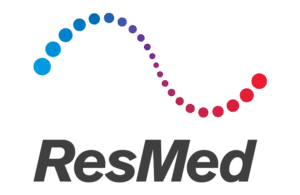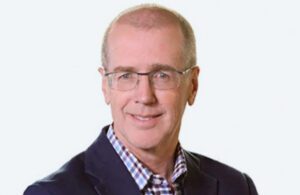 ResMed (NYSE:RMD) can’t go back in time to solve its semiconductor shortage, but it’s found a solution that might be the next best thing — for now.
ResMed (NYSE:RMD) can’t go back in time to solve its semiconductor shortage, but it’s found a solution that might be the next best thing — for now.
President and COO Rob Douglas (serving as interim president of Sleep and Respiratory Care at ResMed after Jim Hollingshead left to be CEO of Insulet) offered an update on the San Diego-based company’s supply chain issues as it tries to capture more of the market while Philips works through its recall.

ResMed President and COO Rob Douglas [Photo courtesy of ResMed]
“We’ve been managing a higher than normal rate of decommits coupled with a competitor recall that sucked all the inventory out of our systems and out of all of our customers’ systems as well,” Douglas said Wednesday at the William Blair Growth Stock Conference. “And so there is a huge shortage of devices. … We joke that the head of our supply chain is actually our chief revenue officer because what that person builds, we sell (in terms of devices) as soon as we can.”
He said the comms module — cellular technology also used in cars and phones — is one of the main components that ResMed has had difficulty obtaining for its AirSense11 devices, which automatically transmit device data for remote monitoring and compliance.
“We had some significant decommits on that, so we introduced a device, an [AirSense10] — which is a very high-end APAP device — with card-to-cloud, so we’re going back to how it used to work before the AirSense10 was launched,” Douglas said. “We’re using a smart media card to collect the data and use that for proof of using the device. We’re targeting that at specific customers.”
Douglas said the card-to-cloud AirSense10 has been well received in its first few weeks and should “ease some of the challenges” while allowing ResMed to get more machines out to patients, even if they lack features like automatic wireless data transmission.
But he expects demand for ResMed products to remain well beyond supply for at least a couple more years. The patient backlog is currently two to 10 months and growing, he said, and the Philips recall is expected to extend into early 2023, plus or minus six months.
“Probably won’t be minus,” said Douglas, who estimated a supply-demand mismatch for a year to 18 months beyond the end of the Philips recall. “We’re in this situation for a long time.”
William Blair analyst Margaret Kaczor, who covers ResMed, introduced Douglas before his presentation and offered her perspective.
“Once these issues are resolved, we really think that ResMed will see a durable competitive advantage for potentially several years, whether that’s from a brand perspective, whether that’s from a bolus of patients that frankly aren’t getting the care they need and deserve,” she said. “Those patients will come back into the channel and hopefully provide accelerated growth again.”
After hosting investor meetings with ResMed management this week, Needham & Co. said it has more confidence “in RMD’s ability to navigate the supply chain crisis and Philips recall.”
“RMD continues to battle supply chain challenges on a daily basis, including semiconductor shortages, logistics challenges, and inflationary pressures, especially on air freight,” Needham said in an update today.
Needham was encouraged by the latest from ResMed but maintained its Hold rating on the stock.
“Management also noted that inflationary and supply chain impacts have begun to stabilize, but we believe that this means that while things are not worsening, they are also not improving,” Needham said. … “We expect RMD’s growth to slow as it laps the Philips recall and Philips reenters the flow generator market.”